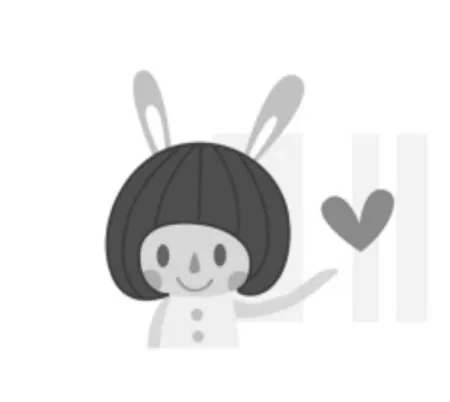周亚文执教绘本课“Chinese New Year”片断赏析
程帼芳

绘本是静态的文本,通过演绎的方式让学生参与进来,让绘本内容成为学生有趣而有意义的学习经验,这与学习绘本的宗旨——有趣不谋而合。通过读、听、观察图片与文字,演绎、体验、讨论、对话等方式,在有声情境和三维立体空间中,教师要引导学生认识、阐述、感受、体悟阅读材料(蒙学琼,2011)。南京外国语学校周亚文老师执教的绘本课“Chinese New Year”以戏剧表演的形式学习绘本,给学生们带来了一堂充满体验的课。
一、悬念设计,推进故事进程
【教学回顾】
Read each scene in the mid-part and finish relevant activities/acting.
Burnt-egg scene:
Listen(闹铃声)
T:Lulu wakes up early in the morning.How early!What time is it?
S:Six thirty.
T:This is short.This is long.
T:Six o’clock.
T:How doesLulu feel?Look atherface.How isher face?(选脸谱)
S:She’s happy,not sleepy.
T:She can do many things with her family.What can they do?
S1:Theycan playgames/watchTV/listen to the radio/cook...
T:What did you see?
S:They can play.
T:Here’rewhattheycan do.They can...(PPT 呈 现 play,watch cartoons,go to grandpa’s house,talk and eat many food)So Lulu’s very happy.But look closely.(PPT圈出露露的表情图)
T:(呈现图片)How’s Lulu?Is Lulu very happy?What can you see?
S1:She’s hungry.
S2:She’s sad.(选脸谱)
T:Unhappy.What happened?Please follow me intoLulu’s family.Have a look.(播放第一场景)
Listen: Mum,what’sthat smell?(PPT呈现图+音频)(生读,师生做动作)
T:Sorry,I burnt your egg.(师生用道具表演)
T:How’s Lulu?
Teach:I burnt your egg.(生读)
S:She’s sad.
T:(PPT呈现Lulu的表情)That’s why Lulu is not happy.
【教学赏析】漫游图片的教学环节只呈现家庭成员名称,先整体预览绘本,让学生感知。场景一以主人公露露的脸部表情为主线,在教师的引领下学生自主体验感受绘本,通过观察封面整体了解绘本中的人物,通过使用道具从听入手,边学边演体会人物情感。阅读有了情境,学生的观察能力和语言能力自然而然得到提高。这样自然追溯到露露不开心的原因,进入绘本的学习中。
二、抓住情感,挖掘故事细节
【教学回顾】
Lulu-in-the-car scene:
Usethehelp ofthe prop car.Read and find out Lulu’s right position.
T:After breakfast.
S:(PPT 呈现)Lulu and her parentsare going to grandpa’s house.
T:Where are they going?
S:(PPT 呈现)They’re going to grandpa’s house.
T:They’re going to by...
S:Car.
T:Where’s Lulu?
S:She’s in the car.
Listen:Dad,I’m already in the car.
T/S:Lulu,hurry up!Grandpa is waiting.
S:Daddy,I’m already in the car!(一名学生用汽车卡片扮演)
T:Ididn’tseeyou.You can get out of the car.
T:How do you feel?
S:I’m not happy.
T:How’s Lulu?(选脸谱)
S:She’s angry.
T:Why is Lulu not happy?(PPT播放汽车声)Andthen where they will go?
T:Where’s she going?
Ss:They are going to grandpa’s house.
【教学赏析】场景二中师生互动共同说台词演绎,男生扮演露露增加表演的趣味性,学生在不断的模仿表演中理解语言。教师以主人公露露的情感变化、面部表情为脉络,让学生根据故事的发展判断人物的心情从而选择脸谱,逐渐建构起故事发展的主干。学生在细致地观察绘本中有趣的文字和画面的同时,感受到绘本的情节,也理解了绘本。
三、捕捉片断,促进主动参与
【教学回顾】
Lulu-and-Ling scene:
S try to drag the sleeve of Ling’s coatoutofthe house,judge where Ling is.
S:Lulu wants to play with her cousin Ling.
T:Where’sLing?Let’s find her.
S:She’s in the house.
T/S:Ling,let’s go outside and play!Let’s call Ling one more time.Where are you?Ling,where are you?
T:Who’s that?You see,is this Ling?
S:Because of the same clothes.
T:Lulu wants to play with Ling.
Listen:No,no,no,it’s cold outside. (Ling doesn’t want to play.)
T:How’s Lulu?
S:Angry.(选脸谱)
【教学赏析】绘本与一般故事的不同在于它基于故事又高于故事,可以从故事中跳出来,真正地转化学生的能动性,变被动为主动。利用绘本中的一幅图,师生共同表演故事片断,在轻松的氛围中进行表达。场景三露露表妹的出场只用了一个衣角,就让故事情节简单易懂。教师引导学生把自己想象成露露,表演绘本中的片断。演绎者乐在其中,观众们置身于其中。

